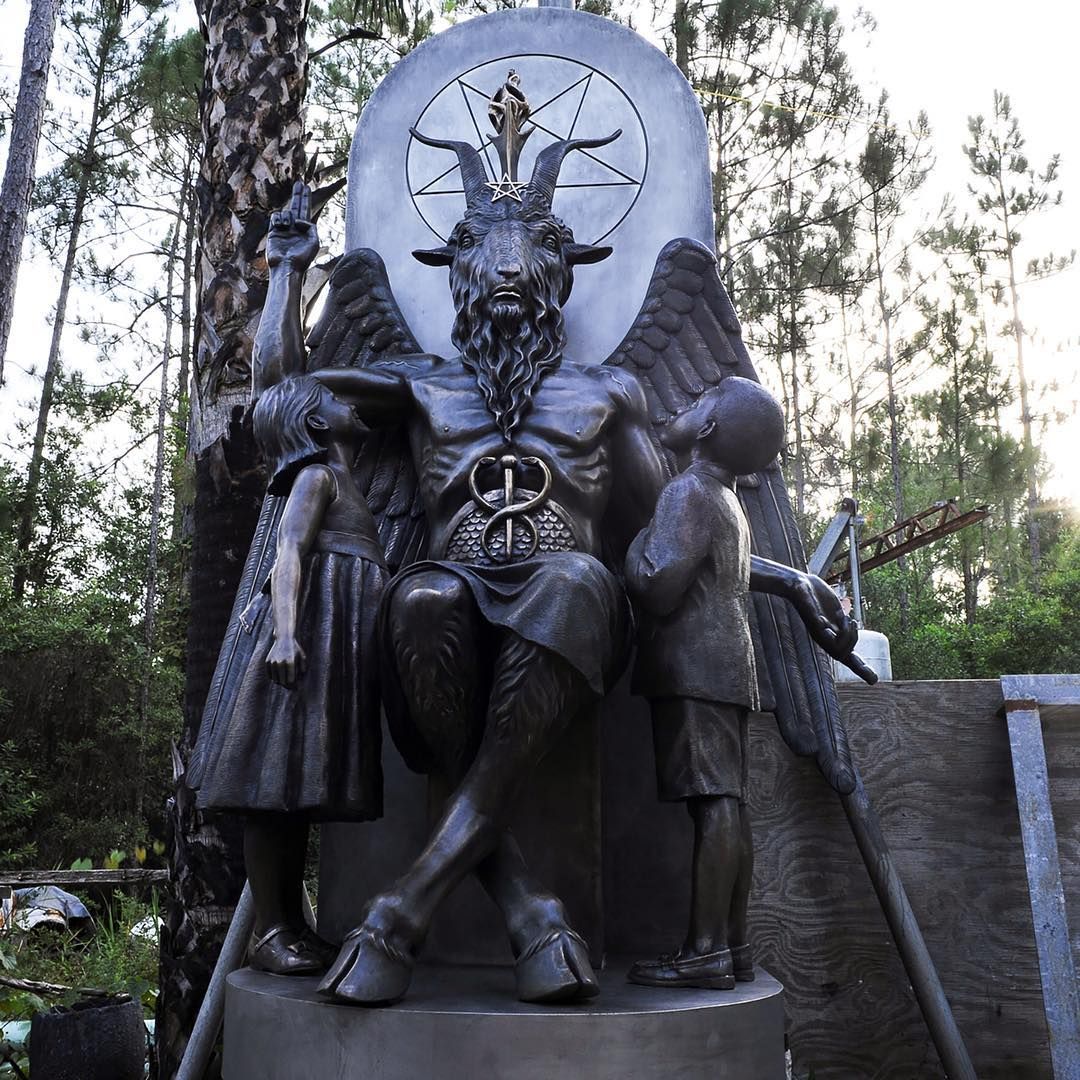- Mar 5, 2024
- 2,135
- 1,103
Before Passing Judgment, Look Yourself Deeply In "The Mirror," Part 2

As discussed in Part 1, when the Pharisees brought Jesus a woman caught in adultery and asked what they should do about it, His response was, "Let him who is without sin cast the first stone." The meaning here was that they needed to look at their own sins and failings before they passed judgment on others. Certainly the Law of God commanded that judgment be carried out, and Jesus did not water things down by downplaying her sin or excusing it. In the end He would tell her, "Go and sin no more." But the teaching here was a lesson in leaving judgment in the hands of God, and when it came to how we treated one another, what the Lord wanted was for His people to show each other mercy and walk in forgiveness.
3 Then the scribes and Pharisees brought to Him a woman caught in adultery. And when they had set her in the midst, 4 they said to Him, “Teacher, this woman was caught in adultery, in the very act. 5 Now Moses, in the law, commanded us that such should be stoned. But what do You say?”... 7 So when they continued asking Him, He raised Himself up and said to them, “He who is without sin among you, let him cast the first stone.” 8 And again He stooped down and wrote on the ground. 9 Then those who heard it, being convicted by their conscience, went out one by one, beginning with the oldest even to the last. And Jesus was left alone, and the woman standing in the midst. 10 When Jesus had raised Himself up and saw no one but the woman, He said to her, “Woman, where are your accusers? Has no one condemned you?” 11 She said, “No one, Lord.” And Jesus said to her, “Neither do I condemn you. Go and sin no more.” (John 8:3-11)
James now repeated much the same teaching, comparing it to looking in a mirror, and remembering that we ourselves also have failings and weaknesses and are not without sins ourselves:
Be doers of the word and not hearers only, deceiving yourselves. For if a man is a hearer of the word yet not a doer, this is like a man observing his natural face in a mirror, in that he observed himself and went away and immediately forgot what he himself was like. But the one who has looked deeply into the perfect law, the law of liberty, and continued therein, not becoming a forgetful hearer but a doer of the work, this man shall be blessed in his doing. (James 1:22-25)
By "the perfect law," James was referring here to "love your neighbor as yourself." The reason he called it that was because by keeping it you were keeping virtually all the Law in the process, and it's why Jesus Himself also referred to it as the second greatest commandment in all of scripture.
One of [the Pharisees], a lawyer, asked Him a question, testing Him, “Teacher, which is the greatest commandment in the Law?” And He said unto him, “‘You shall love the Lord your God with all your heart, and with all your soul, and with all your mind.’ This is the greatest and foremost commandment. The second is like unto it, ‘You shall love your neighbor as yourself.’ Upon these two commandments depend the whole Law and the Prophets.” (Matthew 22:35-39 NASB)
Unfortunately, by the time James was writing this letter, many Jewish Christians had now forgotten this teaching, and instead of loving their neighbors as themselves were treating the poor like spiritual inferiors. It was a kind of spiritual abuse, for if they had been following the perfect law, they would have sought ways to help the less fortunate rather than dishonor them. But they were reinforcing the spiritual abuse instead by sitting the rich comfortably, yet telling the poor to sit in the least honorable seats in the house whenever they came to meetings. This was in effect practicing respect of persons, for they themselves had already become the judges on who was worthy of honor and who was not.
My brothers, do not uphold the faith of our Lord Jesus Christ, the Lord of glory, while engaging in respect of persons. For if there comes into your synagogue a man wearing gold rings and fine apparel, but there may have also come in a poor man in dirty apparel, and you looked upon the one wearing the fine apparel and said to him, "You sit here comfortably," yet to the poor man you said, "You stand there," or "Sit under my footstool," have you not made distinctions amongst yourselves, and become judges arriving at evil verdicts? Hear me, my dear brothers. Did not God choose the poor of this world to be rich in faith, and heirs of the kingdom which he promised to those who love Him? But you have dishonored the poor. Do not the rich oppress you, and drag you into the courts? Do they not blaspheme the good name by which you are called? (James 2:1-7)
Dishonoring The Brethren
Why would James say they were "becoming judges arriving at evil verdicts?" Because even in Old Testament times, engaging in respect of persons was associated with passing judgment on others, and not just their actions but them personally. The term was often used in the context of discussing the legal system, where it was placed in the same category with taking bribes to corrupt justice:
5 Then [Jehoshaphat] set judges in the land throughout all the fortified cities of Judah, city by city, 6 and said to the judges, “Take heed to what you are doing, for you do not judge for man but for the Lord, who is with you in the judgment. 7 Now therefore, let the fear of the Lord be upon you; take care and do it, for there is no iniquity with the Lord our God, nor respect of persons, nor taking of bribes.” (2 Chronicles 19:5-7)
17 The Lord your God is God of gods and Lord of lords, the great God, mighty and awesome, who does not engage in respect of persons, nor takes a bribe. 18 He administers justice for the fatherless and the widow, and loves the stranger, giving him food and clothing. (Deuteronomy 10:17-18)
By saying to poorer believers, "You sit here under my footstool," or "Don't sit in that good seat. Sit over there instead," these New Testament believers were in essence saying, "You are of less value in the eyes of God than this man over here, so go sit elsewhere." This is because granting someone a higher seating within Judaism was a way of bestowing greater honor on them. It's why Jesus scolded the Pharisees for taking honor unto themselves by taking the highest seats, telling them in one place, "Woe unto you, Pharisees! For you love the best seats in the synagogues, and greetings in the marketplaces." (Luke 11:43).
He gave warnings to the disciples about doing this, however, insinuating that it was better to let others be the judge of who was worthy or not, lest they assume things mistakenly. Judging by another parable He would give a few verses later, the suggestion was that believers needed to let God Himself be the judge.
8 “When you are invited by anyone to a wedding feast, do not sit down in the best place, lest one more honorable than you be invited by him, 9 and he who invited you and him come and say to you, ‘Give place to this man,’ and then you begin with shame to take the lowest place. 10 But when you are invited, go and sit down in the lowest place, so that when he who invited you comes he may say to you, ‘Friend, go up higher.’ Then you will have glory in the presence of those who sit at the table with you. 11 For whoever exalts himself will be humbled, and he who humbles himself will be exalted.” (Luke 14:7-11)
The Christians James was now writing to, however, had forgotten these teachings, and were now presuming to know who was worthy of being honored and who was not, based on financial status. What can we assume was the effect of dishonoring the poor like this? Not many enjoy being told they are of less value in the eyes of God than others, nor do many like being dishonored and disrespected in the eyes of an entire congregation of people. It should come as no surprise, then, that James later describes how a spirit of jealousy and contentiousness was present among them. They were increasingly resorting to slandering and cursing one another rather than speaking blessings, and it will eventually lead to warnings that they were giving themselves over to evil and deadly spirits rather than the Holy One.
[The tongue] is a restless evil, full of death-dealing poison. By this we bless our Lord and Father, and by this we curse men who have been made after the likeness of God... if you have bitter jealousy and contentiousness in your hearts, do not boast and lie against the truth. This is not the wisdom coming down from above, but is earthly, soulish, and demonic. For where jealousy and contentiousness are there is social unrest, and every evil state of affairs. (James 3:8-9, 14-16)
All this then demonstrates how dishonoring others would not lead to an environment of peace. Rather, it would generate resentment and strife, which is why James told them from the outset, "Do not uphold the faith of our Lord Jesus Christ while engaging in respect of persons" (James 2:1).

As discussed in Part 1, when the Pharisees brought Jesus a woman caught in adultery and asked what they should do about it, His response was, "Let him who is without sin cast the first stone." The meaning here was that they needed to look at their own sins and failings before they passed judgment on others. Certainly the Law of God commanded that judgment be carried out, and Jesus did not water things down by downplaying her sin or excusing it. In the end He would tell her, "Go and sin no more." But the teaching here was a lesson in leaving judgment in the hands of God, and when it came to how we treated one another, what the Lord wanted was for His people to show each other mercy and walk in forgiveness.
3 Then the scribes and Pharisees brought to Him a woman caught in adultery. And when they had set her in the midst, 4 they said to Him, “Teacher, this woman was caught in adultery, in the very act. 5 Now Moses, in the law, commanded us that such should be stoned. But what do You say?”... 7 So when they continued asking Him, He raised Himself up and said to them, “He who is without sin among you, let him cast the first stone.” 8 And again He stooped down and wrote on the ground. 9 Then those who heard it, being convicted by their conscience, went out one by one, beginning with the oldest even to the last. And Jesus was left alone, and the woman standing in the midst. 10 When Jesus had raised Himself up and saw no one but the woman, He said to her, “Woman, where are your accusers? Has no one condemned you?” 11 She said, “No one, Lord.” And Jesus said to her, “Neither do I condemn you. Go and sin no more.” (John 8:3-11)
James now repeated much the same teaching, comparing it to looking in a mirror, and remembering that we ourselves also have failings and weaknesses and are not without sins ourselves:
Be doers of the word and not hearers only, deceiving yourselves. For if a man is a hearer of the word yet not a doer, this is like a man observing his natural face in a mirror, in that he observed himself and went away and immediately forgot what he himself was like. But the one who has looked deeply into the perfect law, the law of liberty, and continued therein, not becoming a forgetful hearer but a doer of the work, this man shall be blessed in his doing. (James 1:22-25)
By "the perfect law," James was referring here to "love your neighbor as yourself." The reason he called it that was because by keeping it you were keeping virtually all the Law in the process, and it's why Jesus Himself also referred to it as the second greatest commandment in all of scripture.
One of [the Pharisees], a lawyer, asked Him a question, testing Him, “Teacher, which is the greatest commandment in the Law?” And He said unto him, “‘You shall love the Lord your God with all your heart, and with all your soul, and with all your mind.’ This is the greatest and foremost commandment. The second is like unto it, ‘You shall love your neighbor as yourself.’ Upon these two commandments depend the whole Law and the Prophets.” (Matthew 22:35-39 NASB)
Unfortunately, by the time James was writing this letter, many Jewish Christians had now forgotten this teaching, and instead of loving their neighbors as themselves were treating the poor like spiritual inferiors. It was a kind of spiritual abuse, for if they had been following the perfect law, they would have sought ways to help the less fortunate rather than dishonor them. But they were reinforcing the spiritual abuse instead by sitting the rich comfortably, yet telling the poor to sit in the least honorable seats in the house whenever they came to meetings. This was in effect practicing respect of persons, for they themselves had already become the judges on who was worthy of honor and who was not.
My brothers, do not uphold the faith of our Lord Jesus Christ, the Lord of glory, while engaging in respect of persons. For if there comes into your synagogue a man wearing gold rings and fine apparel, but there may have also come in a poor man in dirty apparel, and you looked upon the one wearing the fine apparel and said to him, "You sit here comfortably," yet to the poor man you said, "You stand there," or "Sit under my footstool," have you not made distinctions amongst yourselves, and become judges arriving at evil verdicts? Hear me, my dear brothers. Did not God choose the poor of this world to be rich in faith, and heirs of the kingdom which he promised to those who love Him? But you have dishonored the poor. Do not the rich oppress you, and drag you into the courts? Do they not blaspheme the good name by which you are called? (James 2:1-7)
Dishonoring The Brethren
Why would James say they were "becoming judges arriving at evil verdicts?" Because even in Old Testament times, engaging in respect of persons was associated with passing judgment on others, and not just their actions but them personally. The term was often used in the context of discussing the legal system, where it was placed in the same category with taking bribes to corrupt justice:
5 Then [Jehoshaphat] set judges in the land throughout all the fortified cities of Judah, city by city, 6 and said to the judges, “Take heed to what you are doing, for you do not judge for man but for the Lord, who is with you in the judgment. 7 Now therefore, let the fear of the Lord be upon you; take care and do it, for there is no iniquity with the Lord our God, nor respect of persons, nor taking of bribes.” (2 Chronicles 19:5-7)
17 The Lord your God is God of gods and Lord of lords, the great God, mighty and awesome, who does not engage in respect of persons, nor takes a bribe. 18 He administers justice for the fatherless and the widow, and loves the stranger, giving him food and clothing. (Deuteronomy 10:17-18)
By saying to poorer believers, "You sit here under my footstool," or "Don't sit in that good seat. Sit over there instead," these New Testament believers were in essence saying, "You are of less value in the eyes of God than this man over here, so go sit elsewhere." This is because granting someone a higher seating within Judaism was a way of bestowing greater honor on them. It's why Jesus scolded the Pharisees for taking honor unto themselves by taking the highest seats, telling them in one place, "Woe unto you, Pharisees! For you love the best seats in the synagogues, and greetings in the marketplaces." (Luke 11:43).
He gave warnings to the disciples about doing this, however, insinuating that it was better to let others be the judge of who was worthy or not, lest they assume things mistakenly. Judging by another parable He would give a few verses later, the suggestion was that believers needed to let God Himself be the judge.
8 “When you are invited by anyone to a wedding feast, do not sit down in the best place, lest one more honorable than you be invited by him, 9 and he who invited you and him come and say to you, ‘Give place to this man,’ and then you begin with shame to take the lowest place. 10 But when you are invited, go and sit down in the lowest place, so that when he who invited you comes he may say to you, ‘Friend, go up higher.’ Then you will have glory in the presence of those who sit at the table with you. 11 For whoever exalts himself will be humbled, and he who humbles himself will be exalted.” (Luke 14:7-11)
The Christians James was now writing to, however, had forgotten these teachings, and were now presuming to know who was worthy of being honored and who was not, based on financial status. What can we assume was the effect of dishonoring the poor like this? Not many enjoy being told they are of less value in the eyes of God than others, nor do many like being dishonored and disrespected in the eyes of an entire congregation of people. It should come as no surprise, then, that James later describes how a spirit of jealousy and contentiousness was present among them. They were increasingly resorting to slandering and cursing one another rather than speaking blessings, and it will eventually lead to warnings that they were giving themselves over to evil and deadly spirits rather than the Holy One.
[The tongue] is a restless evil, full of death-dealing poison. By this we bless our Lord and Father, and by this we curse men who have been made after the likeness of God... if you have bitter jealousy and contentiousness in your hearts, do not boast and lie against the truth. This is not the wisdom coming down from above, but is earthly, soulish, and demonic. For where jealousy and contentiousness are there is social unrest, and every evil state of affairs. (James 3:8-9, 14-16)
All this then demonstrates how dishonoring others would not lead to an environment of peace. Rather, it would generate resentment and strife, which is why James told them from the outset, "Do not uphold the faith of our Lord Jesus Christ while engaging in respect of persons" (James 2:1).







